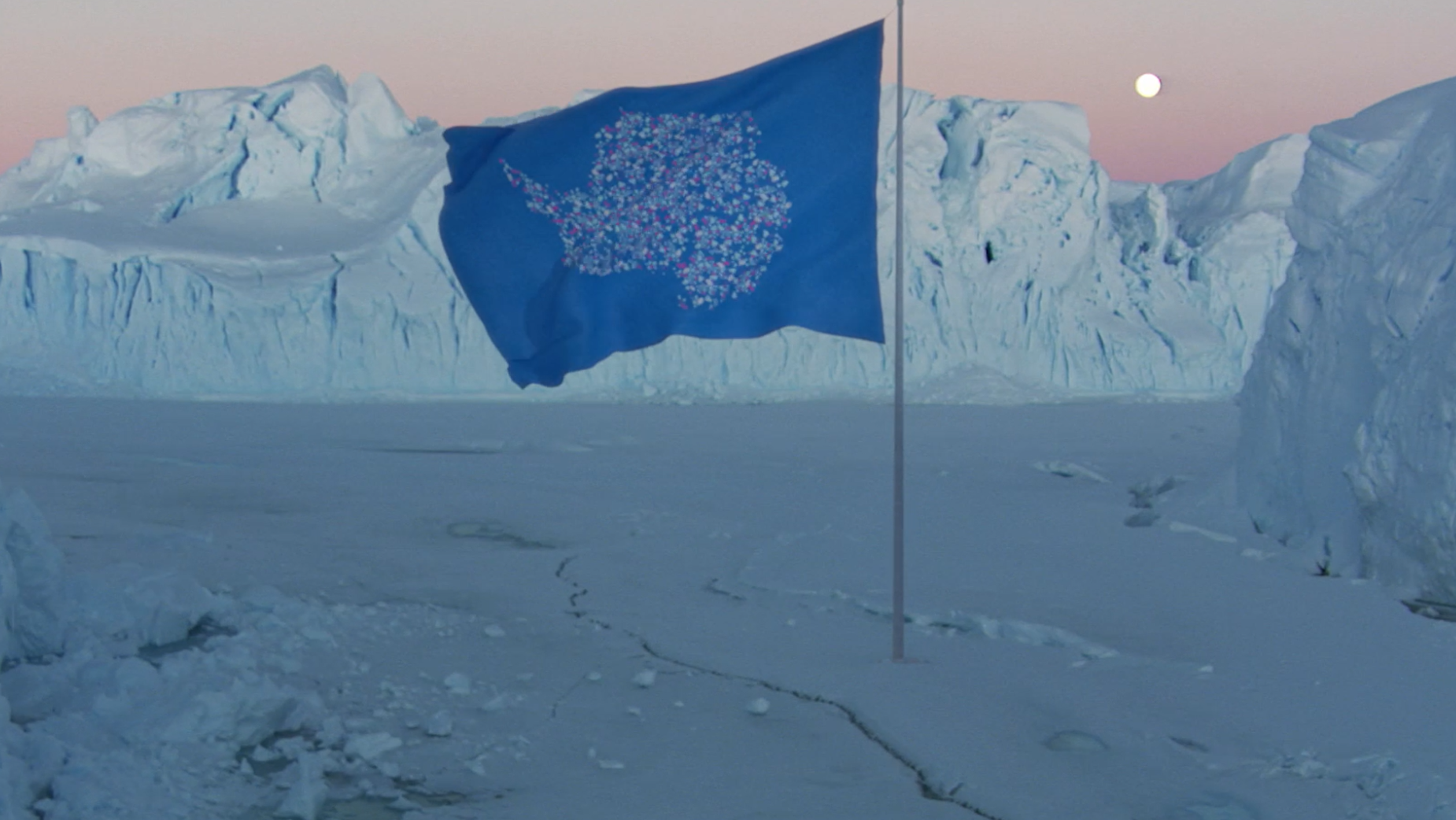
The Antarctica Flag Is Being Redesigned in Urgent Response to the Microplastic Crisis in Antarctica

Antarctica is traditionally known as a land covered in clean ice and pristine snow, but latest research by the University of Canterbury in New Zealand reveals a much starker truth. The continent, much like the rest of the planet, is suffering the impacts of global plastic pollution.
In response to this recent scientific discovery, Agenda Antártica, a non-governmental organisation that works for the environmental preservation of the Antarctic continent and the Southern Ocean, has commissioned a redesign of the Antarctica flag by its original author, renowned vexillologist, Graham Bartram.
Formerly a white map of the continent symbolising Antarctica’s distinctive attributes as a hub for scientific collaboration, peaceful coexistence, and nature conservation, the new flag shows a continent dotted with colourful shapes symbolising the actual microplastics found within Antarctic snow.
"The discovery of microplastics (plastic pieces smaller than 5mm) in Antarctic snow is a wake-up call to the world," said Graham Bartram. "Through this redesign, I aim to ignite a global conversation about our responsibility towards the environment and the urgent need for collective action to combat plastic pollution."
“This redesigned joint initiative aligns with growing international concerns about environmental degradation and the need for sustainable practices. The new flag will serve not only as a symbol of Antarctica's environmental significance but also as a call to action for nations, corporations, and individuals to address the pervasive issue of plastic pollution”, said Dr. Horacio Werner, executive director of Agenda Antártica.
Far from just being a symbolic gesture, the new flag aims to reignite discussions around the University of Canterbury’s scientific findings, drawing much-needed attention to the broader implications of plastic contamination in remote and ecologically critical regions like Antarctica.
In conjunction with the flag's redesign, a dedicated website has been launched where individuals and organisations can learn more about the impact of plastic pollution and take a proactive stance. Visitors to the site are invited to sign a pledge supporting the establishment of a strong Global Plastics Treaty, a crucial step in combating the pervasive issue of plastic pollution worldwide.















